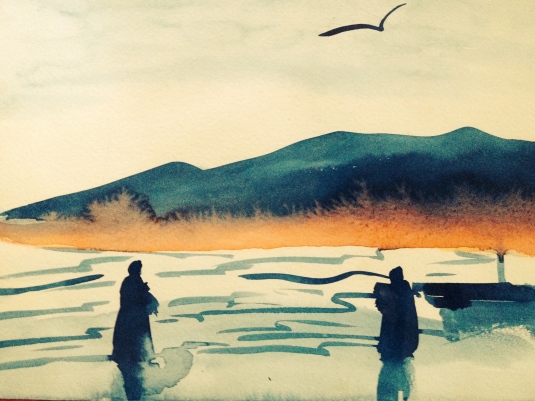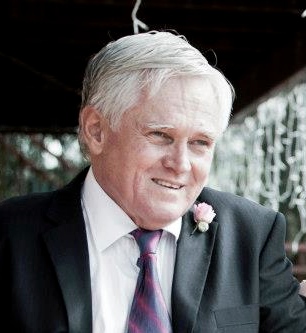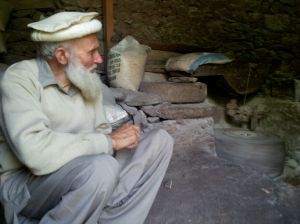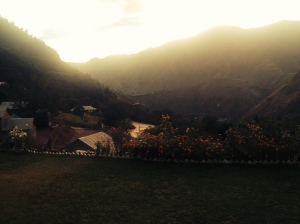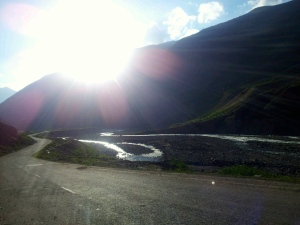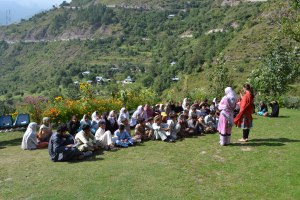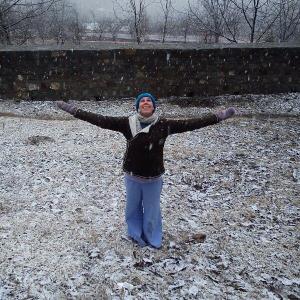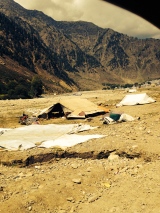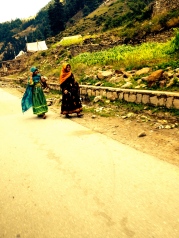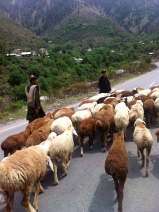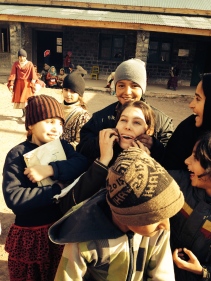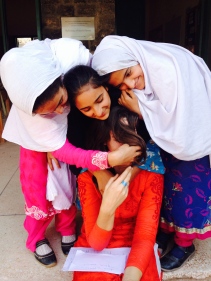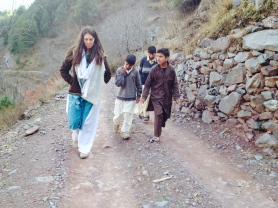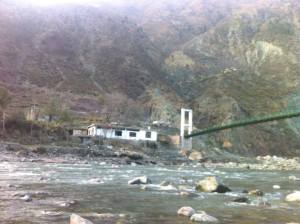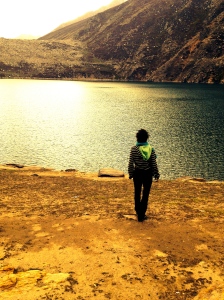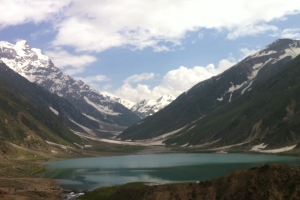(Updated version of a previous post)
When I was fourteen years old I had a teacher who inspired me, by her happy and caring nature, to join her Social Justice lunchtime group at school. I soon became an avid reader of Amnesty newsletters, and began writing letters on behalf of prisoners of conscience. So began an awareness of inequality and injustice.
When I was fifteen I was invited to a Christian youth camp, and realised that I could decide for myself what I believed. I became the only member of my family, apart from my mum, to regularly attend church or profess faith, and although it was a bit of a joke to some of them, it felt like a significant step for me to make a decision for myself about what I believed and who I wanted to be. So began a determination to follow my own path in life.
When I was seventeen I was offered a position as a travelling tutor for the child of a friend going on a musical tour of Europe. It was to be my first big adventure, until then undreamed of. When it fell through near to the last minute, I had a moment of being crushed before realising that just because that plan hadn’t come to fruition, didn’t mean that I couldn’t still go to Europe. So began an understanding that my life is in my own hands, and that if I want something to happen, I have to make it happen.
When I was eighteen I boarded a plane, alone and with tears streaming down my face, excited and terrified. I remember my grandmother predicting I’d be back within a month, and the determination I felt that I wouldn’t let that happen. So began an understanding that the expectation of others do not need to define or limit you.
When I arrived in England, at a loss as to what I should do there, I accepted a job as an aged care worker. At some point, in the midst of wiping another bottom, brushing another set of old dentures, lifting another hoist and watching another pair of eyes echoing loneliness, I realised that at some point, when all physical dignity is seemingly stripped from you, you can maintain your dignity through acceptance and humility. And as a worker, I came to understand the importance of allowing that dignity, and of giving respect, to those to whom little else remains.
When I was nineteen I remembered that I was young, and that although aged care work felt rewarding, there are some things you should do when you are young. Working in a London pub I learned the importance sometimes of having attitude, of taking no bull, and that work can be fun!
Towards the end of that year, on a whim I moved to Israel where I spent three months on a kibbutz milking cows. There I learned to embrace being smelly and dirty and physically exhausted. In Israel I also took the opportunity to make a personal pilgrimage of the sacred places of my religion, and found that they moved me not at all. Thus began a process of understanding the importance of questioning our beliefs and finding what truly resonates with us, and that this can be within or outside of the traditional structures of spirituality.
When I was twenty-two I took time out of university to backpack around South-East Asia and work for four months in orphanages in Vietnam. Although I loved my experience there, I ended my time feeling disillusioned with volunteer programs, feeling that perhaps we did more damage than good, despite our good intentions. And so began my realisation that our critical faculties, and the ability to make informed and well-thought judgements for ourselves, is not just a blessing, but their use a duty and a responsibility.
When I was twenty-three I moved into a hippy drumming community and found a new family and social scene. There, over many years of coming and going, I have learned to value the rich assortment of people around me, and learned that everybody, no matter their age, gender, background and interests, has something valuable they can contribute to our lives and society, and that we can find a common ground with anyone we try to connect with.
When I was twenty-four, undertaking my honours year at university, I travelled to Indonesia to do a field study of traditional music and dance in Aceh. Afterwards I stopped for what was meant to be a couple of days in Jakarta, but after discovering a vibrant Rasta and Reggae scene and befriending a crazy assortment of musicians, sorcerers, and oddballs in various states of intoxication, two days turned into a week, and finally a month, unable as I was to tear myself away from the weird and unfamiliar world I had uncovered. Running out of money I resorted to living under a city bridge with a family of homeless street-musicians rather than leave the dirty, smelly city I had come to love. And so began my deep love for the rough, ungroomed side of life, and an understanding that there can be intense beauty in rawness and grime.
When I was twenty-five I went to the Australian island of Christmas Island to spend a couple of months volunteering in the Immigration Detention Centre, where new Asylum Seeker arrivals in Australia are detained while awaiting processing of their claims. And there, in my own first world country, I learned much more clearly than I ever had in any poor and developing country, just how unjust and unfair life can be. And so began a recognition that we cannot continue to ignore what is uncomfortable, but that we must allow ourselves to truly see the world, both in its light and dark, and find our place in it with an honest understanding of what is in the shadows.
When I was twenty-six I worked in a school in a remote indigenous community in Arnhem Land, Northern Australia. In a world that is like mine, and yet so utterly not, in a world of spirits and magic and wisdom and destruction, I realised that reality is not only what I know it as. And so began a deep appreciation for Australia’s indigenous cultures, and recognition of how little I still understand all the elements of my world.
Later that year I travelled to Turkey to teach English, and in a hard work environment I learned to stand up for myself and say no to what was unacceptable. Leaving, I went to work with nomadic shepherds in the Austrian Alps and learned to listen to the natural world, and walked eleven hundred kilometers on the Camino de Santiago in France and Spain, where I found inner peace (and then lost it again, ‘cause that’s what inner peace is all about I think, a never ending series of steps leading bumpily up and up, towards I’m not sure what). And so I learned that learning is a constant process, never completed and never final in any of its forms.
At twenty-seven I travelled to India and fulfilled a dream seven years in the making, attending the largest religious gathering on earth, the Kumbh Mela. And patience was understood, and rewarded. There, disillusioned with what I saw as a world peopled with phony gurus and egotistical yogis, I learned to look beyond names and forms, and to seek the true heart at the centre.
At twenty-eight I completed a masters degree, finally committing to a career as a teacher, hitchhiked five thousand kilometres with a dear friend and explored freedoms that scared and expanded me, and found that both highs and lows in life are often so inter-tangled that it is impossible to see to which category some experiences belong. And so began the process of ending the categorisation of life.
At twenty nine I found myself in Pakistan, where I fell completely head over heels in love with four hundred children and made a home for myself in a rough mountain village that, until then, I had never known existed. In the two years I lived and taught in a school there, I learned that soul connections can appear in your life at the most unexpected times and with the most unexpected people, and that even small children in conservative Muslim villages can be a “best friend” if you allow your souls to truly connect. I learned to leave aside my age, gender, nationality and religious beliefs, and to see that the spark that unites one being with another is so intrinsically human that we can truly find it anywhere.
At thirty a friend of mine died in very tragic circumstances. The same age as me, and possessing a similar wandering soul, I learned from her death that life is unpredictable, and should not be squandered. At her memorial, her mother read a quote that stuck with me: “Do not cry that it’s over. Smile because it happened”, and from this I learned that death and grief do not need to be feared, but rather life to be celebrated and cherished.
At thirty-one, as if to hammer home the lesson on grief, I lost my father suddenly and unexpectedly. While I have never experienced pain and grief like that before or since, it did teach me a valuable lesson about family, love and connection, and the importance of valuing those closest to you. I learned also that there is beauty even in the most searing pain, and that the totality of the human experience, in all its shades of darkness and light, is a glorious and wondrous gift.
At thirty-one I also returned home and committed to my first ever ‘proper job’, determined to learn how to be content with a ‘normal life’. I spent four years living the conventional ‘5-day-work-week’ life at home, believing others when they said that my incessant desire to travel was a sign of some deep inner-discontent, and that it was a weakness that I should try to overcome, to stop looking ‘out there’ for something that could be found within. However at thirty-four I found the new inner confidence to fully claim the wandering soul that I possess, to fully embrace my desire to roam, and to be confident in knowing that I travel because I LOVE to travel, not because I am somehow lost.
So here I am, at thirty-five, spending what might have gone towards a sensible home deposit instead on new adventures, and happy with the decision to do so. I know that my life is mine, to live as fully and uniquely as I choose to, with many mistakes waiting for me to make them, but also many memories and friends. Life is only what we make it, after all.
“How long? How far? How hard? How fine?
How heavy or light the load?
If it’s half as good as the half I’ve known,
Here’s Hail! to the rest of the road.”
– Don Blanding
